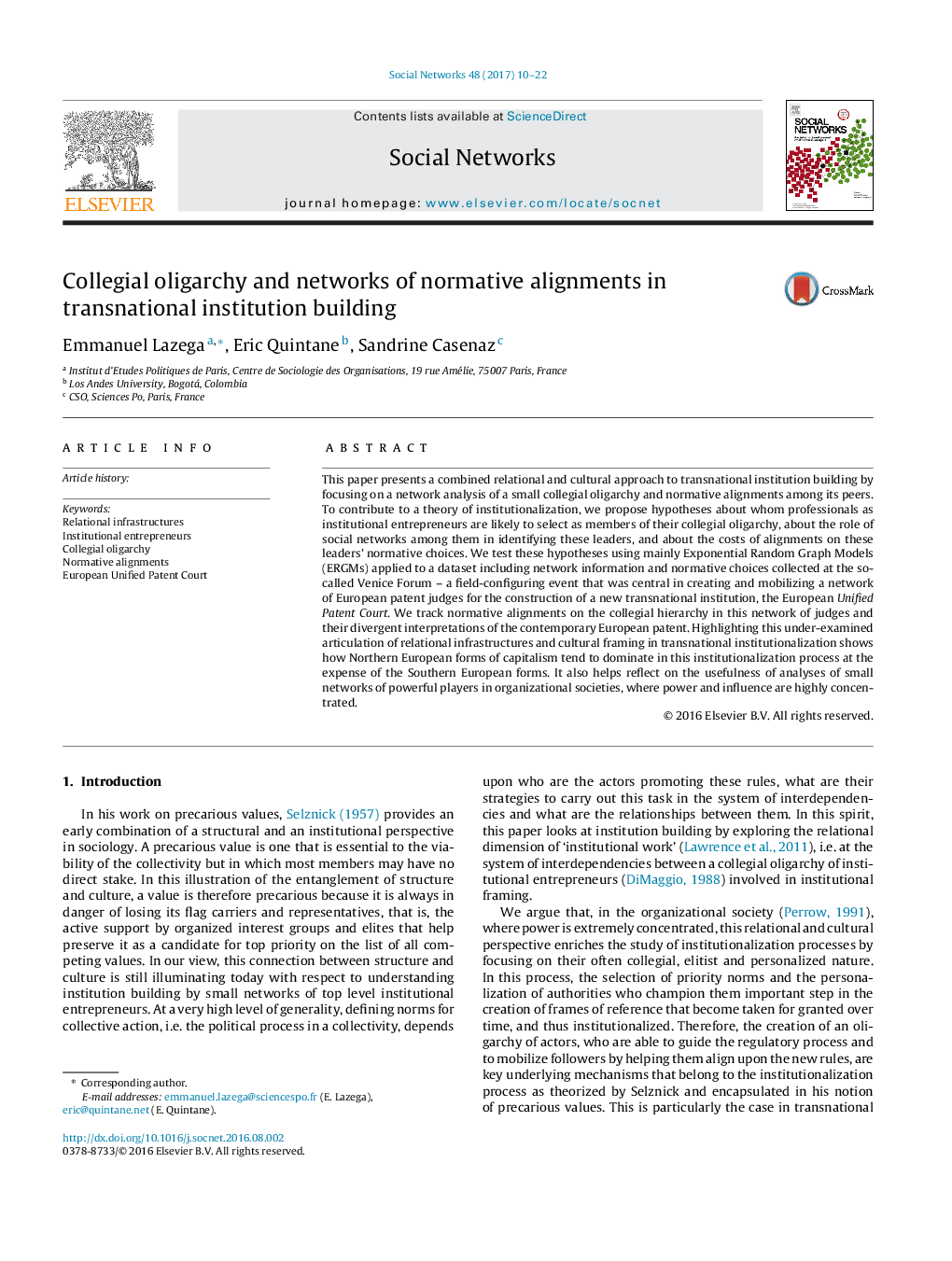ترجمه فارسی عنوان مقاله
الیگارشی همگانی و شبکه های هماهنگی هنجاری در ساختن نهاد های فراملی
عنوان انگلیسی
Collegial oligarchy and networks of normative alignments in transnational institution building
| کد مقاله | سال انتشار | تعداد صفحات مقاله انگلیسی |
|---|---|---|
| 94222 | 2017 | 13 صفحه PDF |
منبع

Publisher : Elsevier - Science Direct (الزویر - ساینس دایرکت)
Journal : Social Networks, Volume 48, January 2017, Pages 10-22
ترجمه کلمات کلیدی
زیرساخت های ارتباطی، کارآفرینان سازمانی، الیگارشی همگانی، ترازنامه های قانونی، دادگاه ثبت اختراع اتحادیه اروپا،
کلمات کلیدی انگلیسی
Relational infrastructures; Institutional entrepreneurs; Collegial oligarchy; Normative alignments; European Unified Patent Court;

